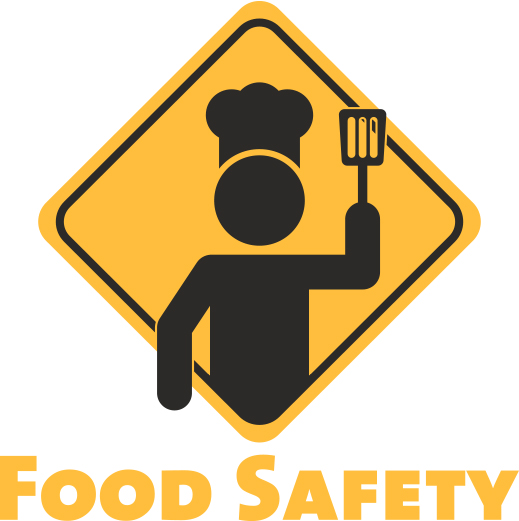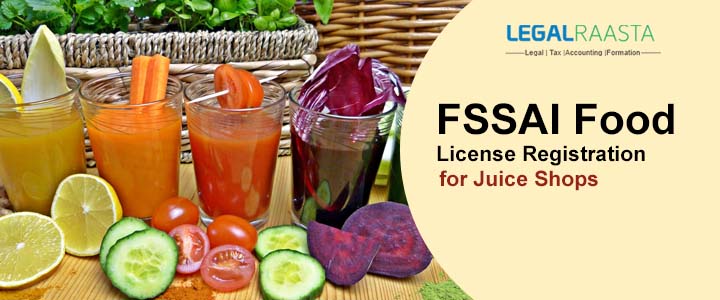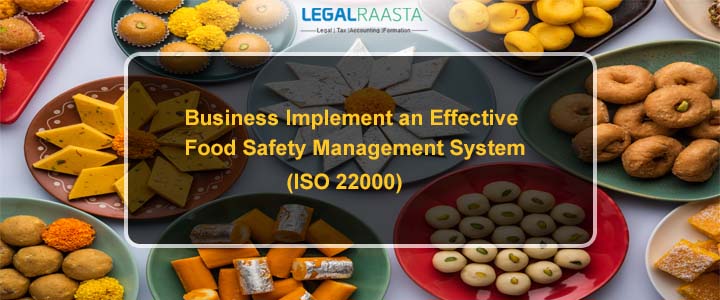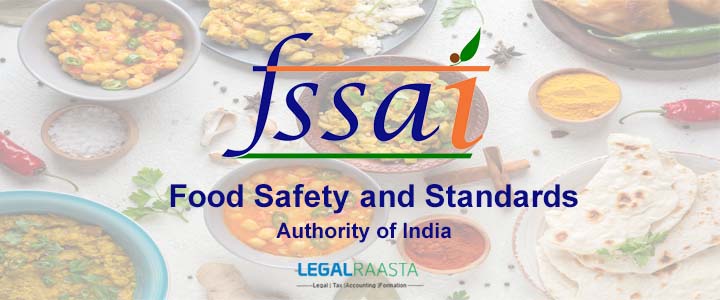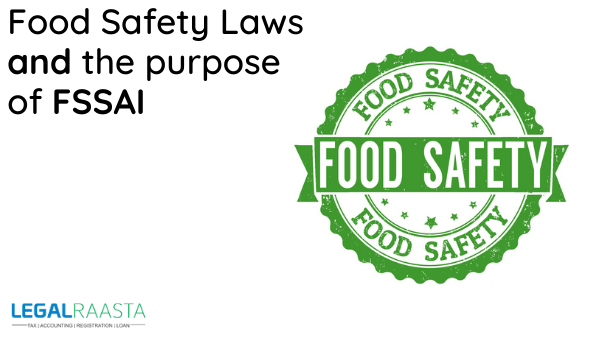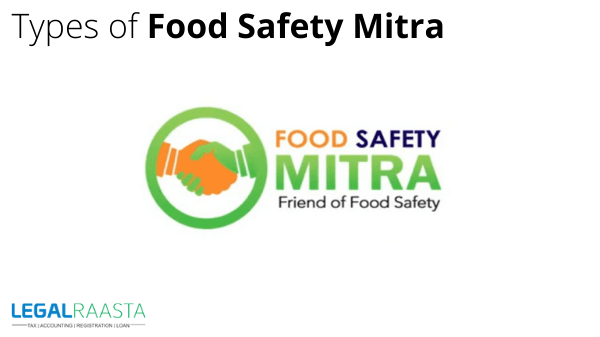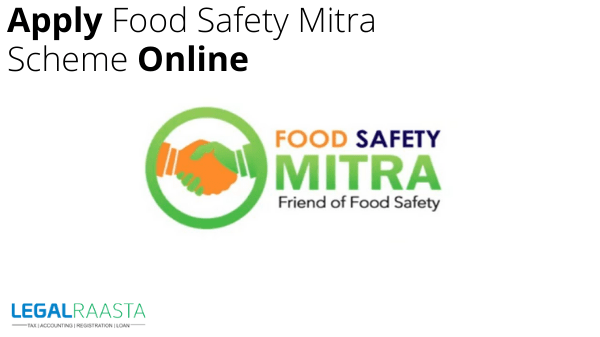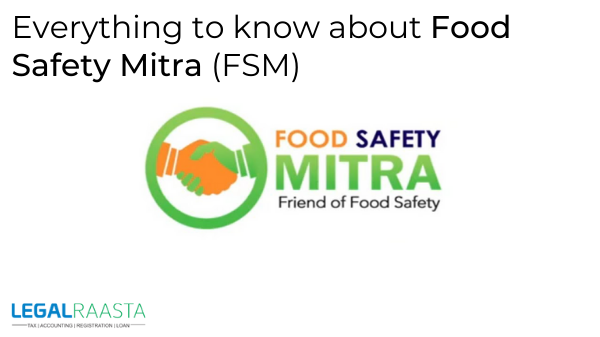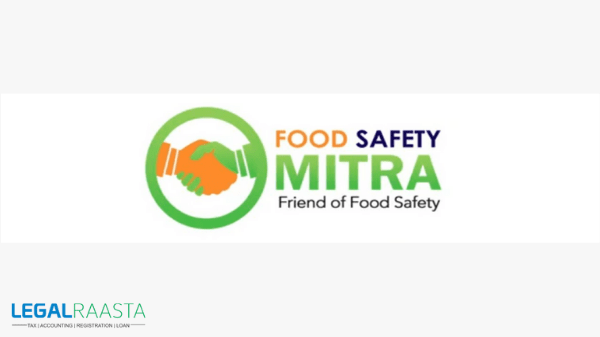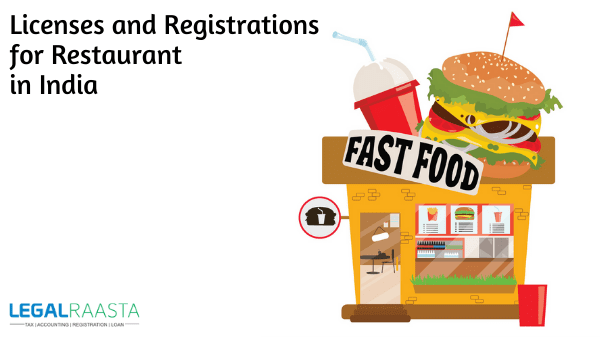Food Safety and Standards Act (FSS Act): Salient Features
Introduction to the Food Safety and Standards Act (FSS Act)
On the 23rd of August, 2006 the government of India passed the FSS Act or the food safety and standards act which changed the way food safety and food handling practices are being monitored in India. The FSS Act also empowered the establishment of FSSAI, the Food Safety and Standards Authority of India which carries out operations related to setting the standards of food articles. The standards set by FSSAI, empowered under the Food Safety and Standards Act are based on scientific research and help regulate the manufacture, storage, distribution, sale as well as import-export of all types of food articles being made available to the general population. The FSS Act endows powers to the FSSAI to certify organizations involved in any type of food-related activities that they are involved with food articles safe for consumption of human beings. This certification is known as a FSSAI license.
Get your FSSAI Food License from LegalRaasta, One of the best facilitators of acquiring the food license registration across the country.
Chapters of the Food Safety and Standards Act
The Act empowered by the government of India has been divided into 12 Chapters which discuss in detail the impact, regulations, authorities that the Act carries with it to empower the safety of food products. The Chapters of the Food Standards and Safety Act are as follows
Chapter I: Preliminary
Preliminary basically gives the introduction to the Act what it stands for, what are the definitions related to the act and also declared that the Union is taking the food industry under its control for the purpose of public interest. This chapter also declared that the applicability of the FSS Act will be throughout India.
Chapter II: FSSAI
Chapter two basically entails setting up the Food Safety and Standards Authority of India (FSSAI) in order to fully exercise the powers and carry out the responsibilities and functions assigned to it by the FSS Act. One of the main functions of FSSAI include is checking the food standards of all consumable items and providing them with
Chapter 2 also tells about the composition of the members of the food authority and hierarchical structure of the authority. FSSAI will contain a Chairperson and 22 other members in it. At the very least, One-Third of those 22 members have to be women. The tenure of the chairperson is 3 years to which they can be further re-appointed for another term of 3 years
In addition to this, the headquarters of FSSAI will be in the capital city of New Delhi. With 6 other regional offices based on the various zones that the jurisdiction of the act has been divided up into.
Headquarter Address: FDA Bhawan near Bal Bhavan, Kotla Road, New Delhi North Region Address: First Floor, NBCC Place, Bhisham Pitamah Marg, Pragati Vihar, New Delhi South Region Address:- 02nd Floor, Central Documentation Complex (South Wing), Chennai Port Trust, Rajaji Salai Chennai
- First Floor, Marine Building Malabar Road, North End, Willington Island, Cochin, Kerala
Chapter III: General Principles of Food Safety
Chapter 3 of the Food Safety and Standards Act focuses on food safety, the purpose for which the act and the body under its guidance FSSAI have been established. The basic principles f food safety outline in the FSS act are as follows.
- Endeavor to achieve an appropriate level of protection of human life and health along with protection of the customer's interests including fair practices in any and all kinds of food trade with reference to food safety standards and practices.
- Perform Risk Management which will take into account the results of risk assessment and other factors which help the regulatory authorities
- In specific circumstances where on the basis of assessment of available information, the possibility of ill effects on health have been detected but scientific uncertainty still persists, provisional risk management measures for appropriate safety should be deployed till the time concrete scientific evidence and proper risk assessment hasn't been conducted.
- In cases where there are reasonable grounds to suspect that a food may present a risk for human health, then, depending on the nature, seriousness and extent of that risk, the Food Authority and the Commissioner of Food Safety shall take appropriate steps to inform the general public of the nature of the risk to health, identifying to the fullest extent possible the food or type of food, the risk that it may present, and the measures which are taken or about to be taken to prevent, reduce or eliminate that risk
- Where any food which fails to comply with food safety requirements is part of a batch, lot or consignment of food of the same class or description, it shall be presumed until the contrary is proved, that all of the food in that batch, lot or consignment fails to comply with those requirements.
Chapter IV: General Provisions as to Articles of Food
- Use of Food Additive or Processing Aid No article of food shall contain any food additive or processing aid unless it is in accordance with the provisions of this Act and regulations made thereunder
- Contaminants, Toxic Substances Heavy Metals No article of food shall contain any contaminant, naturally occurring toxic substances or toxins or hormone or heavy metals in excess of such quantities as may be specified by regulations.
- Pesticides, Veterinary Drugs, Antibiotic Residue, Microbiological Counts No article of food shall contain insecticides or pesticides residues, veterinary drugs residues, antibiotic residues, solvent residues, pharmacologically active substances and microbiological counts in excess of such tolerance limit as may be specified by regulations
- Genetically Modified Foods, Organic Foods Functional Foods, Propreitory Foods
- No person shall manufacture, distribute, sell or import any novel food, genetically modified articles of food, irradiated food, organic foods, foods for special dietary uses, functional foods, nutraceuticals, health supplements, proprietary foods and such other articles of food which the Central Government may notify in this behalf.
- Packaging and Labelling of Foods
- Every food business operator shall ensure that the labeling and presentation of food, including their shape, appearance or packaging, the packaging materials used, the manner in which they are arranged and the setting in which they are displayed, and the information which is made available about them through whatever medium, does not mislead consumers.
- No person shall manufacture, distribute, sell or expose for sale or despatch or deliver to any agent or broker for the purpose of sale, any packaged food products which are not marked and labeled in the manner as may be specified by regulations
- Restrictions on Advertisment and Prohibition as to unfair trade practices
- No advertisement shall be made of any food which is misleading or deceiving or contravenes the provisions of this Act, the rules and regulations made thereunder.
- No person shall engage himself in any unfair trade practice for purpose of promoting the sale, supply, use, and consumption of articles of food or adopt any unfair or deceptive practice including the practice of making any statement, whether orally or in writing or by visible representation which falsely represents that the foods are of a particular standard, quality, quantity or grade-composition or makes a false or misleading representation concerning the need for, or the usefulness.
Chapter V: Provisions Related to Import
- No person shall import into India any unsafe or misbranded or sub-standard food or food containing extraneous matter or any article of food for the import of which a license is required under any Act or rules or regulations, except in accordance with the conditions of the license and any article of food in contravention of any other provision of this Act or of any rule or regulation made thereunder or any other Act.
- The Central Government shall, while prohibiting, restricting or otherwise regulating the import of article of food under the Foreign Trade (Development and Regulation) Act, 1992 (22 of 1992), follow the standards laid down by the Food Authority under the provisions of this Act and the Rules and regulations made thereunder.
Chapter VI: Special Responsibility to as to Food Safety
The chapter VI of the Food Safety and Standards Act basically dictates the responsibilities of the people involved in the food business and how this translates into ensuring the delivery of safe food products to the consumers. These are divided into three broad categories in the FSS Act. These are as follows.:
- Responsibilities of the Food Business Operator
- Liability of Manufacturers, packers, wholesalers, distributors, and sellers
- Food Recall Procedures
Chapter VII: Enforcement of the Act
Chapter 7 entails in great detail the powers and efficient enforcement and compliance with the safety rules for food items being made available to the general population. It also describes the authorities and the officers responsible for enforcing the same via the provisions of the Food Safety and Standards Act. The enforcement of the act via regulatory bodies and officers allocate towards food safety have been divided up by the central government as follows.
- Authorities responsible for enforcement of the Act
- Commisioner of Food Safety of the State
- Licensing and Registration of Food Business
- Improvement Notices
- Emergency Prohibition Notice and Orders
- Notification of Food Poisoning
- Designated Officers
- Food Safety Officer
- Powers of the Food Safety Officer
- Liability of the Food Safet Officer
- Food Analysis from Purchaser
- Power of search, seizure, investigation, prosecution and procedure thereof
- Procedure for launching Prosecution
Chapter VIII: Analysis of Food
The Analysis of food chapter 8 in the Food Safety and Standards Act , lays down the procedures and the intricacies involved with checking and analyxing the food products which have been shipped for consumption by the masses. The detailed procedure for the analysis of food has the following provisions :- Recognition and accreditation of laboratories, research instiutions as well as referral food laboratory
- Recognition of Organisation or agency of food safety audit
- Food Analysts
- Functions of Food Analyst
- Sampling and Analysis
Chapter IX: Offences and Penalties
The Chapter 9 of the Food Safety and Standards Act lays down the foundation for and the provisiions for the non-compliance of the food businesses to deliver safe food to consumers and hence list down a comprehensive list of offences and penalties imposed thereof on the violators of the regulations. The offences and penalties under the act are classified under the following provisions.- General Provisions relting to offences
- General Provisions relating to Penalties
- Penalty for selling food not of the nature or substance or quality demanded
- Penalty for sub-standard food.
- Penalty for misbranded food.
- Penalty for misleading advertisement
- Penalty for food containing extraneous matter
- Penalty for failure to comply with the directions of Food Safety Officer
- Penalty for unhygienic or unsanitary processing or manufacturing of food
- Penalty for possessing adulterant
- Penalty for contraventions for which no specific penalty is provided
- Punishment for unsafe food
- Punishment for interfering with seized items.
- Punishment for false information
- Punishment for obstructing or impersonating a Food Safety Officer
- Penalty for contravention of provisions of this Act in case of import of articles offood to be in addition to penalties provided under any other Act
- Offences by companies
- Compensation in case injury of death of consumer
- Punishment for carrying out a business without licence
- Punishment for subsequent offences.
Chapter X: Adjudication and Food Safety Appellate Tribunal
The Food Safety Appelleate Tribunal handls matters relaed to the offenses commited under violation of any of the regulations directd and laid down by the Food Safety and Standards Act of 206. Let's take a look at what entails the functions of the Food Safety Appelleate tribunal and how adjudication is made on the matters related to negligence of Food Safet and it's practises.
- Adjudication
- Power to compound offences
- Establishment of Food Safety Appellate Tribunal
- Procedure and powers of the Tribunal
- Power of court to try cases summarily
- Civil court not to have jurisdiction.
- Power of court to try cases summarily
- Special courts and Public Prosecutor
- Power to transfer cases to regular courts
- Appeal
- Time limit for prosecutions
- Power of court to implead manufacturer etc
- Magistrate’s power to impose enhanced punishment
- Defences which may or may not be allowed in prosecution under this Act
Chapter XI: FINANCE, ACCOUNTS, AUDIT AND REPORTS
This section of the Food Safety and Standards Act basically deals with financing, mainitainince of books, audits and audit reports of entities involved in the food business activities as well as the food authority. Provisions listed out in this chapter of the FSS Act have the following stipulations:
- Budget of the Food Authority
- Finances of the Food Authority
- Accounts and Audit of Food Authority
- Annual Report of Food Authority
Chapter XII: Miscellanous
- Power of Central Government to issue directions to Food Authority and obtain reports and returns
- Power of Central Government to give directions to State Governments
- Members, officers of Food Authority and Commissioner of Food Safety to be public servants
- Protection of action taken in good faith
- Overriding effect of this Act over all other food related laws
- Transfer of existing employees of Central Government Agencies governing various foods related Acts or Orders to the Food Authority
- Power of Central Government to make rules
- Power of Food Authority to make regulations
- Power of State Government to make rules
- Laying of rules and regulations before Parliament
- Reward by State Government
- Recovery of penalty
- Repeal and Savings
- Transitory provisions for food standards
- Milk and Milk Products Order, 1992 shall be deemed to be regulations made under this Act.
- Amendments to the Infant Milk Substitutes, Feeding Bottles and Infant Foods (Regulation of Production, Supply and Distribution) Act, 1992
- Power to remove difficulties.
The Food Safety and Standards Act of 2006 has ensured that a comprehensive analysis of every food product that is is being made available is carried out with the safety and health of the consumers carrying the paramount importance. Obtaining a FSSAI License or a FSSAI Registration will help your your food business ensure consumers that you are deploying the safest and best food production andfood handling practises and will also help you to stay on the right side of the law. Call +91-8750008585 to get started!

